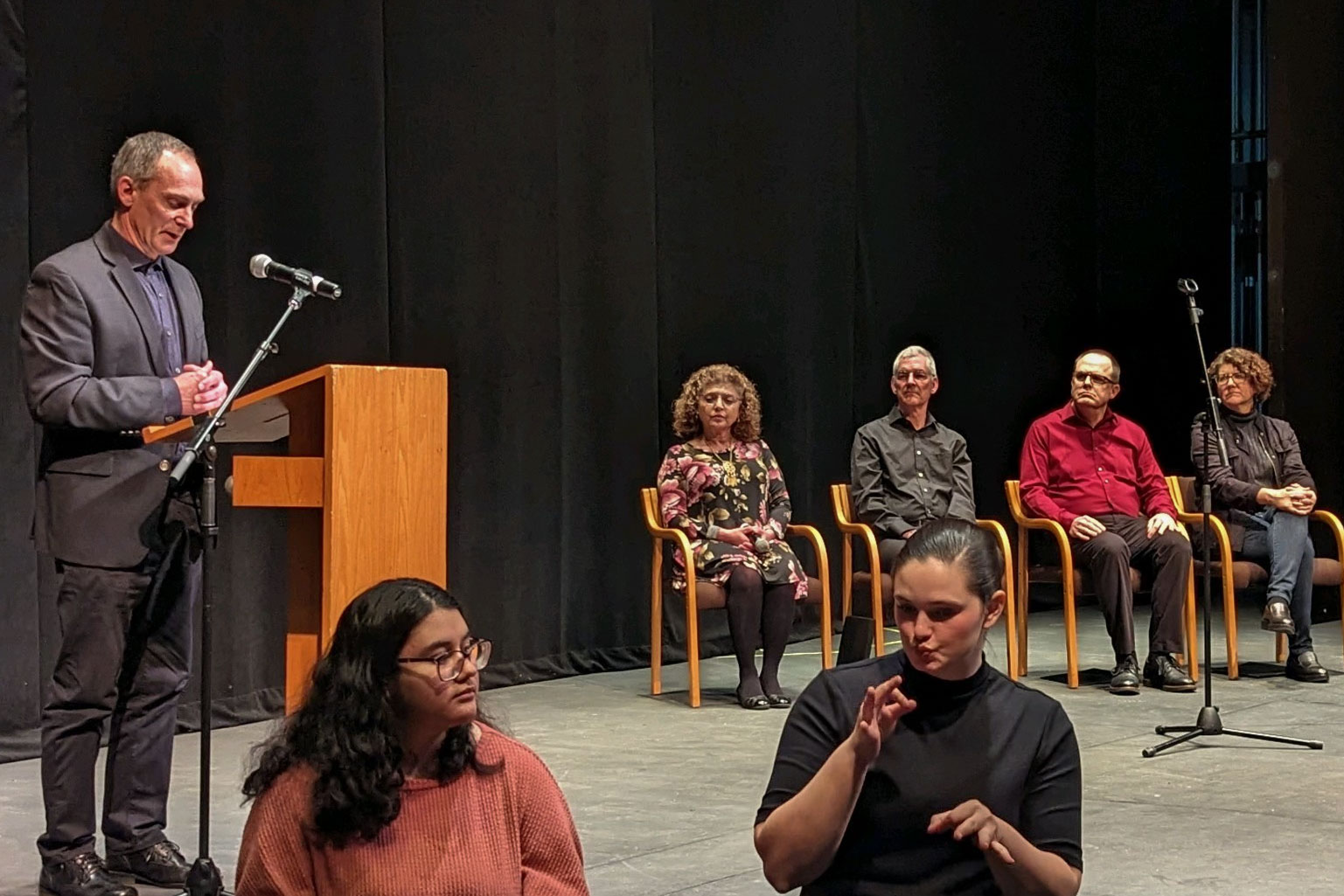Communication professor Duane Stoltzfus presented the 2023 C. Henry Smith Peace Lecture in Umble Center on Tuesday, Feb. 7.
The lecture, titled “Love of Country Distilled to a Question: When Pacifism Became a Litmus Test for Citizenship,” was intended to showcase the hardships of certain aspiring United States citizens in a post World War I society.In 1906, the government added a question to the citizenship application process that asked, “If necessary, are you willing to take up arms in defense of this country?” For many, the answer would be an unwavering “yes,” but for others, the answer wasn’t so simple.
Undoubtedly, the question targeted pacifists and conscientious objectors. Refusing to bear arms in defense of the country resulted in an immediate block from citizenship.
That evening, Stoltzfus was joined by colleagues who reenacted portions of related court cases from that time.
Among these colleagues were Suzanne Ehst, an education professor; Doug Liechty Caskey, a retired theater and communication professor and Rocio Diaz, director of community engagement and adult outreach programs.
Stoltzfus spoke of several pacifists who were blocked by the United States for refusing to bear arms. One of the most influential figures at this time was Rosika Schwimmer, a Hungarian-born woman living in the United States.
Schwimmer was a known pacifist, feminist and supporter of progressive movements. During World War I, she was a part of the crew that spearheaded Henry Ford’s Peace Ship expedition as an attempt to hasten the end of the war.
In 1929, Schwimmer appeared in front of the U.S. Supreme Court for the final portion of her citizenship test. While she had lived in several different countries, including the United States, Schwimmer was originally born in Hungary. She had landed in the United States after fleeing from political persecution in Hungary in 1921.
Schwimmer and her views were well known in the U.S., as they often directly combatted the press. When the Supreme Court asked her if she would be willing to bear arms for the country, she replied that she “would not take up arms personally.” Despite lawyers’ advocacy on her behalf, defending her right to pacifism, she was still denied access to citizenship.
Stoltzfus and his colleagues shared two more stories nearly identical to Schwimmer’s, all of which begged the question of semantics: why should a hypothetical question determine if someone is fit to be a United States citizen?
Stoltzfus closed out the evening with these thoughts, noting that perhaps the government could do better than a formal test, especially since most citizens born in the U.S. are unable to answer the questions themselves. Instead, incoming citizens could be asked open-ended questions about their thoughts on American policies, their hopes for the government in the future and more.
The presentation ended by denouncing the government’s citizenship test question, noting that there is more to a human being than just being willing to bear arms in times of trouble. Stoltzfus emphasized that the lives of Americans, both citizens and residents, should not rest on hypotheticals.



